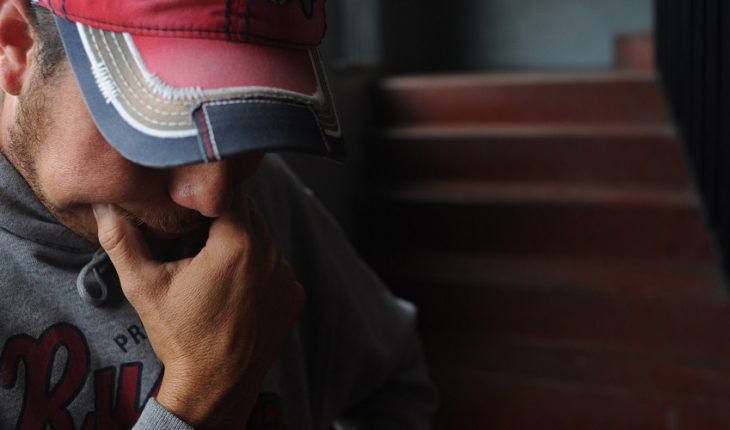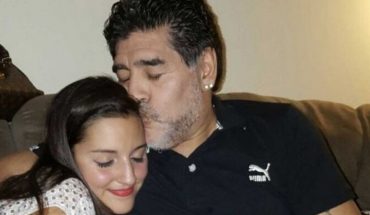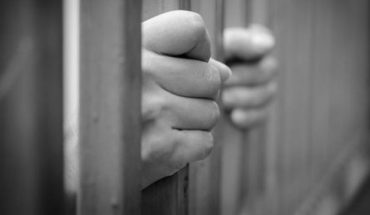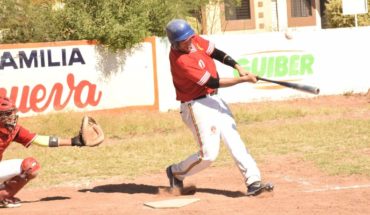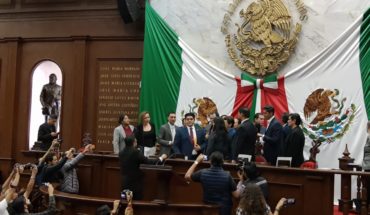A report by the organization Doctors for Human Rights (PHR) highlights the post-traumatic stress and depression experienced by U.S. asylum seekers waiting in northern Mexico. To prepare the study, the organization’s experts interviewed 18 protection plaintiffs from Honduras, El Salvador, Nicaragua and Mexico. In almost all cases they detected mental health problems arising from the dangers addressed in their countries of origin, transit and waiting, in precarious conditions, in our country.
The cases show the diversity of reasons that move thousands of people to leave their home and try to reach America: extortion; gang pressures such as Ward 18 or Mara Salvatrucha (MS-13) to join their ranks; sexual abuse; discrimination by gender or attacks by criminal groups.
You may be interested in Theft, abuse of authority and extortion: Data on violence experienced by migrants in Mexico
Three of the applicants assessed had experienced violence perpetrated by state actors, while the rest were targeted by non-state actors. This often makes it difficult to access asylum, as cases of gang attack or gender-based violence are taken into account by American judges.
The PHR report indicates that violence is targeting specific sections of the population. For example, it notes that all the young men interviewed indicated that the gangs had urged them to enter their structure. Whoever refuses can even be killed. In the case of women, the practice is to make them a victim of sexual violence both to force them into the gang as a “girlfriend” of one of its members, or as punishment if their partner does not want to participate in the structure.
The LGTBI population suffers from its own problems, with “threats, arbitrary arrests, murders and other acts of violence by state and non-state actors”.
This report seeks to dismantle claims such as those made by US President Donald Trump, who questioned the true motivations of asylum seekers and hinted that these were strategies to be able to migrate.
At the U.S. port of entry in Tijuana, the number of asylum seekers authorized to cross per day is heavily limited by “measurement”.
In this regard, “PHR further discovered that US policies have left asylum seekers stranded in Tijuana, where they are vulnerable to violence, theft and extortion by cartels, gangs and police authorities,” the report details .
“Current U.S. asylum policies that restrict the right of asylum seekers to enter the United States inflict deeper trauma on them with each day they are forced to wait. Many of those interviewed by PHR reported feeling under imminent threat during their trip to the border,” he says.
Find out: Mexico reduced us flow to the US by 56%, Ebrard says
12 of the 15 adults interviewed tested positive for post-traumatic stress disorder (PTSD). Many of them also tested positive for depression and hypervigilance and anxiety.
“The PHR findings provide a compelling argument for the U.S. government to allow people to apply for asylum quickly and fairly and demonstrate how restrictive policies can aggravate the stress and harm suffered by this group of people already traumatized,” the report says, which requires Donald Trump’s administration to “immediately stop hindering the internationally recognized right to apply for asylum.”
“He always told me he’d kill me and bury me if I didn’t go with him.”
Adriana, 18, escaped the sexist violence of El Salvador. He paired up with a gang member who threatened to kill him if he left him. He was in charge of the work of his cohabitant’s home. She got pregnant and barely had to eat. The underage girl recounts that she was not even allowed to leave the house after one day she went out to eat with her grandmother.
After an argument in which she complained about not having to eat, the gangster punched him in the stomach until he made him lose the twins he hoped for after spending 20 days in the hospital. That’s why he ran away with his mother.
In his clinical analysis he shows difficulty sleeping and a high ease of startled. She claims to feel “irritable, stressed and easy to get angry.” He has nightmares with what he lived with. “Like many survivors of domestic abuse, she feels guilty and ashamed. He also wonders if he did enough to stop what happened or it’s his fault,” the report explains.
“In the streets every corner was the same, death and gangs”
David is 35 years old and Honduran. He is currently awaiting processing in Tijuana, Baja California. However, it has been in Mexico for some time. Years ago, someone wanted to recruit him to a gang. His father, who participated in one of these structures, helped him leave the country and sent him to southern Mexico with his mother. The mara’s offer (the report does not specify which of them) was clear: either it was part of its ranks or it had to leave the city.
In southern Mexico he found that there were also problems with violence. In particular, paramilitary forces involved in landhoarding and displacement, according to the report. One of these groups killed David’s neighbors and he was threatened to leave, because he witnessed the events.
PhR an expert doctor found that Jorge is positive for the post-traumatic stress syndrome test and that he has moderate depression
A month later, these same men returned: he had five days to leave. As a cousin had recently been killed in Honduras, returning was not an option. So David and his mother traveled to Tijuana to seek asylum in the United States.
“There are no physical signs of ill-treatment. He tested positive for both post-traumatic stress disorder and major depression. David reports stress, anxiety and sleep problems almost every day,” says clinical analysis, which notes that his concern is that his pursuers will find him. Asked if he feels safe in Tijuana he replied that “things are the same here, dangerous.”
Read more: 3 factors that explain why the number of people arriving at the southern US border has skyrocketed
“We want to live in peace, without fear, and work”
Hortensia, 35, worked in a market in Mexico where she was forced to pay extortion. He recounts witnessing several murders for not paying. One day, armed men entered his trade and took his father. Two days later, he received a video in which he is seen with eight gunshots to the body. Three days after burying the father, the whole family left for Tijuana.
According to the study, Hortensia suffers from depression and post-traumatic stress. The analysis also refers to an episode, recounted by herself, that lasted eight days and in which she cried “uncontrollably and could not eat”.
He claims to have retrospective memories of his father and “acute shock symptoms like fainting.” After two weeks in Tijuana, the woman says she feels safe in the shelter, but not on the street.
“The gangsters would have discovered me and killed me”
Jimena fled Honduras after gang members raped her as punishment because her partner did not want to integrate into the structure. For five months, they, along with their 2-year-old son, made the journey to Tijuana. In her interview, Jimena explained that her father raped her as a child.
“Shows signs of severe depression,” PHR experts consider. In her report, they point out that she says she “often has to force herself to eat and has trouble concentrating.” It also refers not to sleep too much, shows signs of hypervigilance and avoids situations that may remind you of rape. He even points out that he tried to kill himself.
Now that he’s in Tijuana, he says his priority is his children.
What we do in Animal Político requires professional journalists, teamwork, dialogue with readers and something very important: independence. You can help us keep going. Be part of the team.
Subscribe to Animal Politician, receive benefits and support free journalism.#YoSoyAnimal
translated from Spanish: Asylum seekers in the US present post-traumatic stress
October 9, 2019 |
